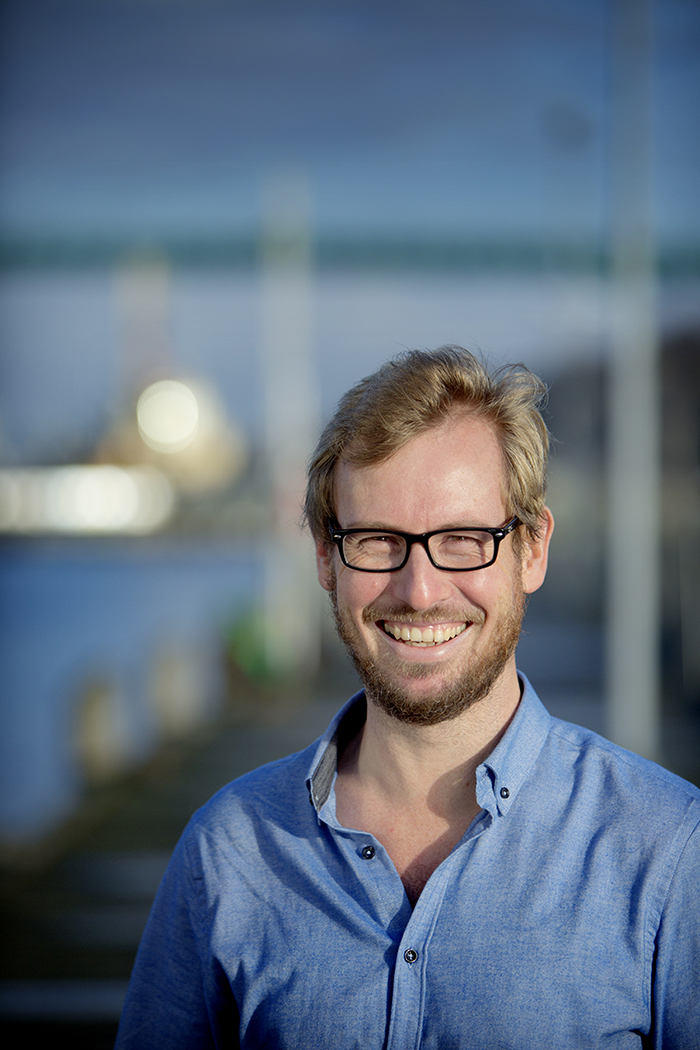Three questions to Sebastiaan Swart, newly appointed associate professor in oceanography at the University of Gothenburg’s Faculty of Science.
– To be honest, as fairly new to Sweden, the Docent process and award was unknown to me. Yet, the award was a great time to self-reflect on what has been achieved and where I, as a researcher, would like to head in the years to come. I appreciate the evaluation and recognition for the science my team and me have done and I hope to use this as a stimulant to the risky and exciting science challenges we face in the near future.
– My research focus is on the physical processes that occur and evolve in the  upper layers of the ocean; in particular, small scale (a few kilometers in size) features like oceanfronts, jets and eddies. This is essentially the weather of the ocean and it is very difficult to observe and understand them, especially in the remote and cold waters surrounding Antarctica, where my field study sites lie. I use drones that fly in the ocean for 6-12 month at a time, collecting measurements of the physical properties of the ocean. These robotic platforms send the data back to us and receive new commands via satellite communication. In 2018 and 2019, we will send these drones under Antarctic sea ice for the first time to make scientific measurements.
upper layers of the ocean; in particular, small scale (a few kilometers in size) features like oceanfronts, jets and eddies. This is essentially the weather of the ocean and it is very difficult to observe and understand them, especially in the remote and cold waters surrounding Antarctica, where my field study sites lie. I use drones that fly in the ocean for 6-12 month at a time, collecting measurements of the physical properties of the ocean. These robotic platforms send the data back to us and receive new commands via satellite communication. In 2018 and 2019, we will send these drones under Antarctic sea ice for the first time to make scientific measurements.
– This 'weather' in the ocean has critical implications for current and future climate. These processes essentially regulate the rate of carbon and heat exchange between the ocean and atmosphere and are therefore the state of the climate and ecosystem health of the oceans. We therefore need this information to improve estimates of what the Earth's climate will look like in the future. The Southern Ocean is also the source region for most of the nutrients in the world's ocean. The fish and other marine resources of our oceans use nutrients that are mostly derived from the Southern Ocean.
Contact:
Sebastiaan Swart, senior lecturer at the University of Gothenburg + 46 (0)31 786 5628, +46 (0)723 667 672, sebastiaan.swart@marine.gu.se